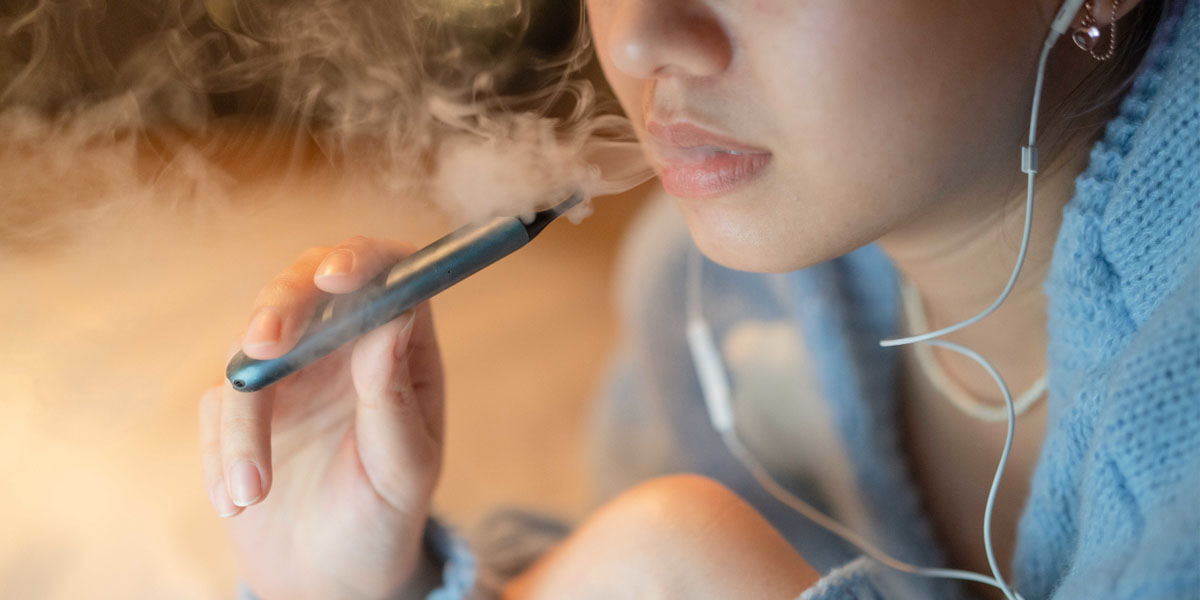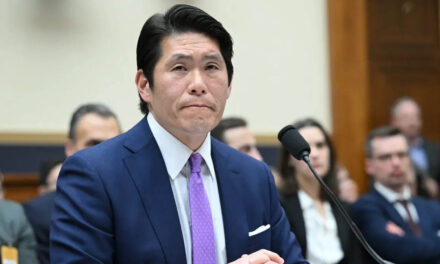
The Profound Risks of Recreational Cannabis Use in Teenagers

The escalating issue of marijuana use among teenagers and its profound link to the onset of severe mental health disorders, notably psychosis, is an urgent public health concern. This article provides an in-depth examination of the detrimental effects of cannabis on adolescent mental health, focusing on the significantly increased potency of the drug and its correlation with higher rates of psychosis, especially in young users.
In the past few decades, the nature of marijuana has dramatically transformed. The cannabis of today is markedly more potent than the varieties common 20 or 30 years ago. This evolution in potency is a critical factor contributing to the increase in psychotic episodes among youth. Dr. Deepali Gershan, an addiction psychiatrist, remarks, “This isn’t the cannabis of 20, 30 years ago,” reflecting on the changing nature of the drug and its impact on users. Similarly, healthcare-analytics company Truveta highlighted a startling increase in diagnoses for cannabis-induced disorders, which were over 50% higher at the end of November than in 2019.
The journey of Braxton Clark, a young individual who turned to marijuana in high school, exemplifies the perilous potential of cannabis. Clark’s daily use of marijuana at the age of 17 led to a debilitating psychotic episode at 18, marking the beginning of a strenuous path towards recovery. His experience mirrors that of many other teenagers and young adults who have succumbed to delusions and paranoia following cannabis use. “I had lost my faculties. I wasn’t making sense,” Clark reflects on the impact cannabis had on his mental health.
Compelling research underscores a disturbing correlation between cannabis use and the development of psychosis. A pivotal study in the American Journal of Psychiatry in 2017 revealed that even a single psychotic episode following cannabis use was associated with a 47% chance of a person developing schizophrenia or bipolar disorder. This risk is particularly acute for individuals aged 16 to 25, and it is greater than the risk associated with substances such as amphetamines, hallucinogens, opioids, and alcohol.
Johns Hopkins Study: THC’s Impact on the Adolescent Brain
A study conducted by Johns Hopkins Medicine researchers discovered that high levels of THC in adolescent mice caused changes to the structure of microglia, brain immune cells, potentially exacerbating genetic predispositions to schizophrenia. The study, published in Nature Communications, adds to the burgeoning evidence about THC’s risk to brain development in adolescents. “Recreational and medical marijuana use is rapidly expanding in the United States and abroad, and teens are especially vulnerable to long-term negative effects of THC,” says Atsushi Kamiya, a professor at the Johns Hopkins University School of Medicine, emphasizing the dangers posed by the increasing potency of marijuana.
The Profound Risks of Recreational Cannabis Use in Teenagers
The use of recreational marijuana in teenagers is linked to a significantly increased likelihood of developing psychiatric disorders such as depression and suicidality. Teens who use cannabis are two to four times more likely to develop these mental health issues than those who do not use the drug at all. This increased risk is partly due to the ongoing development of the brain, which does not fully mature until around the age of 25. Bonnie Halpern-Felsher, a developmental psychologist at Stanford, highlights the criticality of this developmental stage, noting, “We definitely know that if you are an older adolescent or young adult, and you have a genetic or familial predisposition for psychosis and you use cannabis, it seems to be the trigger to actually having you have that mental health issue.”
The growing potency and accessibility of cannabis, coupled with widespread misconceptions about its safety, are taking a significant toll on society. The personal tragedies of individuals like Randy Bacchus and Braxton Clark illustrate the devastating impact of cannabis use. Meanwhile, healthcare professionals are increasingly concerned about the broader societal effects, as emergency rooms and psychiatric wards see a rising number of young people suffering from cannabis-induced disorders.
Society in recent years has relaxed its views on marijuana, with many states decriminalizing or outright legalizing its use. While it is still illegal at the federal level, the laws are no longer enforced with any vigor. This has been one of those issues where once the door is opened it can never be closed – marijuana will never be banned outright again. And our children will suffer for it.
Our philosophy is that if you are an adult and can take responsibility for you life, go ahead and destroy it with marijuana, alcohol or other substances if you like, as long as society doesn’t have to pay for it. But the flipside is that minor children who are not mature enough to be responsible for their adult life should not have access to dangerous and addictive substances.
And anyone who pushes addictive substances onto a minor children and causes them to be addicted (a condition that can ruin the rest of their life) should be subject to the death penalty.
https://www.wsj.com/us-news/marijuana-depression-psychosis-869490d1

























I guess this explains AOC . . .
Hmmm, guess I should let the New Riders tell my story:
“Henry got to Mexico and turned his truck around
He’s talking with the man who has it
Growing from the ground
Henry tasted, he got wasted, couldn’t even see
How he’s gonna drive like that is not too clear to me
And now he’s rolling down the mountain
Going fast, fast, fast
And if he blows it this one’s gonna be his last
Run to Acapulco to turn the golden keys
Henry keep the brakes on for this corner if you please”
Or maybe the great Arlo:
“Yeah, there’s a guy with a ticket to Mexico
No, he couldn’t look much stranger
Walkin’ in the hall with his things and all
Smilin, said he was the Lone Ranger
Comin’ into Los Angeles
Bringin’ in a couple of keys
Don’t touch my bags if you please, mister customs man”
which leads to the prophet, Bowie:
“Oh no, love, you’re not alone
No matter what or who you’ve been
No matter when or where you’ve seen
All the knives seem to lacerate your brain
I’ve had my share, now I’ll help you with the pain
You’re not alone
Just turn on with me and you’re not alone
Just turn on and be
Just gimme your hands ’cause you’re wonderful
I said, gimme your hands ’cause you’re wonderful”
We know that marijuana use changes the lungs. What we don’t know is the long range effect. I have no desire to use cannabis–nothging inviting about it for me.
Arrrrrrrrgh, it’s reefer madness all over again…..
“And anyone who pushes addictive substances onto a minor children and causes them to be addicted (a condition that can ruin the rest of their life) should be subject to the death penalty” apparently has replaced “just say no.” Now it’s death to under-age pushers of pot while this same douche deters from threats to those who serve alcohol to minors……and frankly, who hasn’t?
FYI: the same people you are getting your info indicate that you cannot be physically addicted to pot. HOWEVER, you can have “marijuana use disorder” which looks the same without the bodily pain when quitting.
Anecdotally, I find really good pot will give me a massive craving the next day for more. It’s massive mental (not physical) craving with the only relief being a puff which, frankly, would ruin the rest of my day. Sometimes it is a bit tough to work through, but still better than the call for alcohol where there can be real physical pain for not responding to the call.
IMO, while this writer is a spin toad with a 1950’s mindset, he is basically right if you strip away his need for violent revenge and punishment for pot combined with his brainless paranoia over pot’s effect on the body while saying little about a little wine for jr. at dinner, a little champagne at NYears.
I think his first source link is excellent and does a much better job at objectivity than this writer. He should have read it more carefully in that it discounts many of his conclusions.
First — yes, minors and drugs of any kind are a bad mix. Any drugs. Yes, today’s pot is incredibly stronger, like trading 2.8 beer in for grain alcohol. It’s psychedelic powers are akin to eating an oz per brownie strength dessert, one of the most destabilizing couple hours of my life —- and that was road pot. Thus the brownie, thus the quantity. And when you read the article, kids predisposed to mental health issues can easily be triggered by this stuff. I can easily see it. It’s really strong and, for a short time, it can make you see things —- literally and figuratively. It’s vastly different than the 60’s through 90’s. Enough said —- anyone giving drugs of any kind to kids should be punished with some really stiff penalties as should alcohol. But death seems cruel and unusual.
IMO, all things in moderation. In my youth, I ALWAYS would be sure amateurs had a guide, a sponsor, to be sure they would survive the experience without a bummer. Most often, you just need a friend and the ugly thoughts will disappear in minutes. Sometimes, even a bummer for a bit can be insightful illumination. But alone, unchecked, and unprotected, I can see where one could flip out, especially an inexperienced minor.
When I moved from wild-assed consulting to stuffed-shirt conservative AT&T, I thought a good time to give it a rest. No problems, just stopped cold turkey. Now, I find the analgesic properties to be quite useful, properties that a decade ago I would have told you do not exist. Beats living on Advil and may have lower risks. Certainly to the liver. But the stronger stuff has thrown me for a loop at times, I have to tell myself, “stop, not real, wait fifteen minutes and it will go away” at times. I am moving to lesser strengths mostly because the extra tar grosses me out. So I can easily see this tipping someone over the edge. Unfortunately I expect this to get worse —- nature of the beast —- and I do fear for the drug that I find so helpful that after decades of hiding in the shadows is finally legal in NJ.
But really —- death for giving a kid a joint? That’s a bit much. You only get ten years for whipping a gun out on a kid. And again, pot is not physically addicting. Stop the fear mongering. I think your article was spin, but the first link is spot on, so thanks for that.
And as far as lung damage, most experts agree, any of these effects soon disappear when you quit smoking. Here’s some straight skinny from NIH re lung damage. You can use the index on the left to see other harmful effects and all sorts of neat stuff. My point: folks have been looking for physical reasons not to smoke pot for decades. Compared to cigarettes, alcohol, you name it, pot is the superior way to get high without killing yourself or others. Yes, it has risks. So does walking down the street. But there is no smoking gun, no silver bullet about the harmful effects on the body of pot. Except that I could tell you more, but my short-term memory is shot :>). *https://nida.nih.gov/publications/research-reports/marijuana/what-are-marijuanas-effects-lung-health*
That said, kids are a different ball of wax and pot is a no-no and anyone who gives it to them should be punished severely. Now, please roll “Reefer Madness” for the author so he can write his next hit.
Truly, Frank, if I had my way with things, I’d outlaw several things that during my own experience have turned out to be harmful. And, as you indicated, teenagers really are pretty clueless for the most part about a lot of things. They want to get high. They want to get drunk. They want to be treated like adults. Alfred E. Neuman once quoted, “Teenagers are people who will act like children if we don’t treat them like adults.” or something like that.
Back in my own teenage days I remember being often asked if I’d like a joint or a pill, and I always passed on it. Why? Couple of reasons. I had for a long time pretty deep religious faith and I saw it as wrong on the face of it from what my pretty fundamentalist Free Methodist Church mentors told me; including a doting Mom and Gramma. I personally thought about it when I was in college studying Civil Engineering and decided that I liked being in control of my emotions and my head WITHOUT drugs or pot. Yeah, I got wasted on alcoholic beverages any number of times, but seldom had terrible hangovers. And, I didn’t do this every day or anything like that. We did have FUTT (Friday Under The Table) club and the old Stein and Pitcher after our early classes were over. It was a great wind-down from our hectic week before hitting the books all weekend to be ready for the next week. Yeah, I got wasted at some parties and stuff with my Pershing Rifles buds, but usually kept a decent lid on it.
From the days of my childhood in the “good old 50’s” I was one of the weird kids who DIDN’T want to push the envelope until I found the edges of it and got into trouble. I liked to avoid trouble and sort of float along in life. I was also a late virgin. Of course part of that was being in Engineering school. Female classmate percentage was like 2%. My whole class had 4 women and I had dates with two of them. I think only one finally graduated in engineering and now I’m glad a lot more women are getting into the trade. But, as for the drugs and stuff… I did the other sort of line. I was ROTC when ROTC was NOT cool. I was one of the guys who at University of Toledo stood up to the A.H.’s who came over the day after Kent State and tried to start some crap at our place. A bunch of us got together and invited them to leave before they managed to fall up a flight of stairs or some such thing. Our threats to these bozoes were subtle but effective.
As for the drug culture, it was there. I used to know a couple guys who were dealing and played a lot of bridge with these guys before I found out that Greg and Charlie were dealers. Then, the folks I knew and hung around with sort of boycotted these two. I saw one of them arrested and perp-walked on local TV later on and was not at all surprised.
The point I’m trying to make is that it takes determination to resist the temptation of drugs, marijuana, and booze. It takes commitment on the part of parents, teachers, and governmental leaders to attack the problem and EDUCATE kids about the TRUTH of what will happen to you if you get heavily into drugs or booze. And, I know from my own experiences (as YOU no doubt can remember the same) how immature we were in our teens and how our roaring hormones had us tightly wound up all the time. I was truly not ready to face a lot of the stuff that I was expected to face at age 17. Vietnam was just really heating up. Draft dodgers were everywhere. Drugs were available everywhere (pot, speed, heroin, LSD, etc.) and you could get it if you wanted. I rationalized my personal stand against drugs by telling others I didn’t want it because if I had a problem I was trying to drop out on, if I did the dropout with drugs I’d get high for a while but when I came down the problem would still be there. Or booze, too. So, I decided to man up and face it without the drugs or booze. Yeah, a time or two I got good and wasted AFTER the crisis of Finals or something like that was OVER and did it to celebrate.
One of the things a strong faith has taught me over the years is that we CAN drink or smoke as long as we don’t do it to excess. My old fundamentalist teachers at Dorr St. Free Methodist warned us to stay totally away from smoke and drink. Since that time I realize that even the Good Book tells us that the real prohibition is drunkenness. NOT a need for total abstinence, but do things “in moderation”. There were any number of ritual offerings in the Old Testament that at times said an offering of beer was part of the requirement. Alcoholic drinks were allowed in many places because of the same reason it was generally okay in Medieval Europe. The water was so terrible most of the time that the only truly safe drink would have alcohol in it to kill the microbes. But, they didn’t yet understand the germ theory of disease then.
And then there is the subject of mentoring. MY mentors didn’t drink or smoke. Never saw my parents, or my maternal grandparents smoking or drinking. And they were the ones I learned from that alcohol and tobacco were not necessary for a successful life. Yeah, I smoked a pipe for several years and later on took up cigars for a few years. But as soon as I had a major coronary and a mitral valve replacement, I have smoked only three cigars in the last 14 years and drink only occasionally. I easily do without it.
The point I’m trying to make is that it takes MENTORING by us adults to show the kids they don’t need this stuff to live. They don’t HAVE to push the envelope to be successful. They may have to do it to be popular, but is popular all it’s cracked up to be? I wasn’t popular or even very much acceptable, save for a small circle of pretty decent friends. Otherwise, I managed to be reasonably successful by steering myself into government service and made a career out of it. I avoided leadership roles because I got an engineering degree because I wanted to be an engineer and not a paper pusher. Got my wish and a LOT fewer wrinkles and ulcers for my trouble.
I had great mentors in my Mom, my Grama, my Grampa, and sometimes my Dad. Had a great bunch of Sunday School teachers and such to show me the way, and a Loving God who gave me the common sense to listen to them. So many kids today don’t have parents who will take the time to properly mentor them. They’re often so wrapped up in advancing their careers that they don’t take the time to stop and smell the roses, or the soiled diapers. Often, they finally want to “family up” about when they hit 40 or so and suddenly realize it may be too late. All the more is the pity for these folks. And meanwhile the kids who get left behind will look for other ways of fulfillment than the parents who don’t have time for them. Even more is the pity for these lost souls left behind…